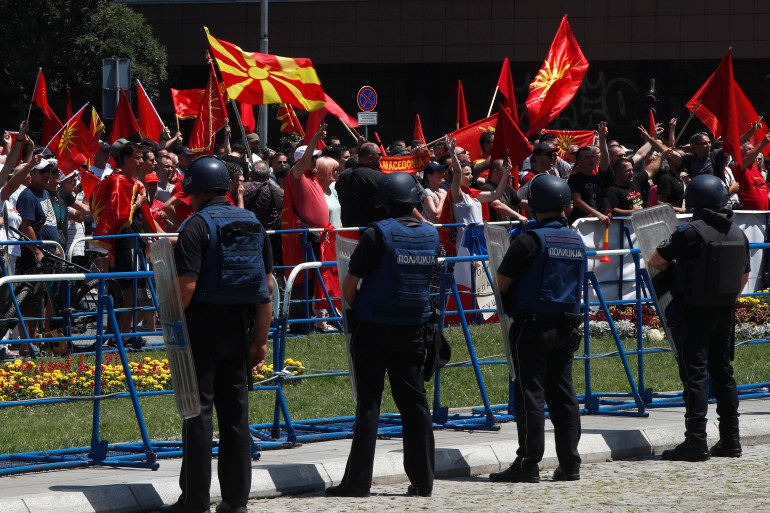by KATERINA KOLOZOVA

People wave the old and the current national flags and chant slogans during a protest against the ‘French proposal’ in Skopje, North Macedonia on July 16, 2022
[PHOTO/File: AP/Boris Grdanoski]
Much of the Macedonian civil society has joined the right in rejecting a deal with Sofia and Brussels. This is dangerous.
Over the summer, a proposal by the European Union to resolve North Macedonia’s dispute with neighbouring Bulgaria, which had imposed a veto on its EU membership bid, caused much social upheaval in the Balkan country. The Macedonian opposition rejected what came to be known as the “French proposal” and called for mass demonstrations.
After the Macedonian government approved the proposal and Sofia lifted its veto, opposition parties declared that they will vote against changes in the constitution to accommodate the document’s provisions. In September, the opposition also announced it is seeking a referendum to cancel the 2017 Treaty on Good Neighbourly Relations between the two countries, which was rejected by the parliament – for now.
That the opposition is taking advantage of the situation to seek political gain is understandable. But in its opposition to the “French proposal” and a resolution of the dispute with Bulgaria, it has been joined by the majority of the presumably progressive and pro-EU civil society.
This exposed the unsettling reality that the supposed proponents of EU integration are quite quick to give up on it and advocate for “alternatives” that most certainly would undermine North Macedonia’s democratic path and stability.
To understand the dangers of this situation, it is important to recall how North Macedonia got here. After the breakup of Yugoslavia, along with Slovenia, the then-Republic of Macedonia was one of the first former Yugoslav republics to receive recognition of its independence by the European Community (now the European Union). In 2005, it received EU-candidate status. Yet due to disputes relating to its cultural heritage and national history with its EU neighbours, Greece and Bulgaria, it was left in the EU’s waiting room for almost 20 years, as the start of accession negotiations was delayed.
Aljazeera for more